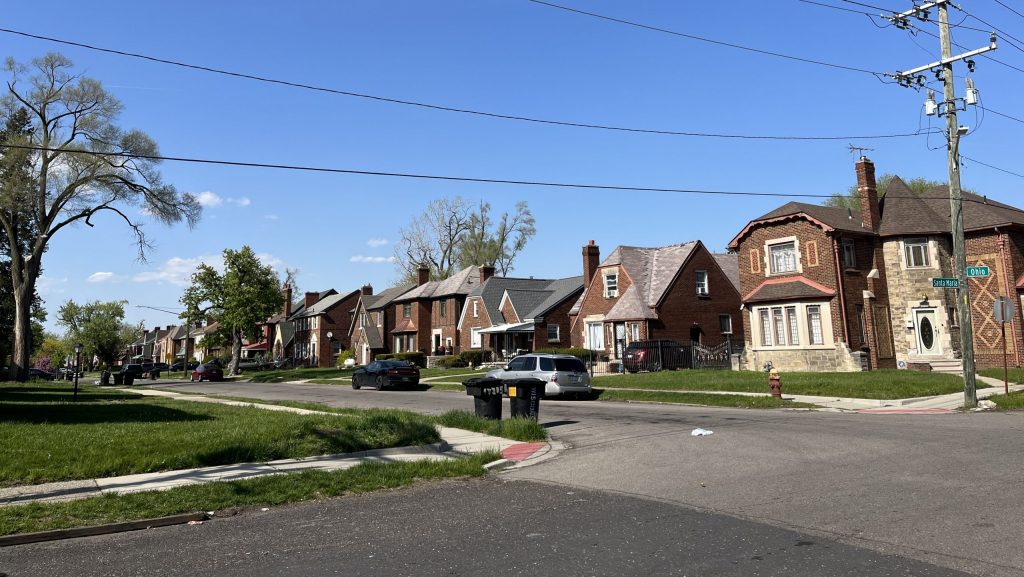Created Equal: How will this week’s Supreme Court decision on foreclosure profits affect Detroit homeowners?
Justina Giglio July 31, 2024Today on the show, host Stephen Henderson was joined by three guests to dig into Monday’s ruling that homeowners who lost their home to foreclosure prior to 2020 may be entitled to “windfall profits” from the sales.

Brick houses in Detroit's Bagley neighborhood.
The Michigan Supreme Court ruled this week that its 2020 decision — which held that former property owners were entitled to the profits of tax foreclosure sales — can apply retroactively.
That means the “windfall profits” generated by the foreclosing county treasurer would be returned to the previous landowners.
Since Detroit has a complicated history with homeownership, this ruling strikes at the heart of poverty and inequality in the city. Yet, it may not provide the intended restorative justice for Detroit residents. For example, landlords who bought a property through tax foreclosure but then lost it to the same process, could argue they are owed the windfall profits rather than the original owner.
Alex Alsup, vice president of research and development for Regrid — a property data and location intelligence company — Detroit Free Press and BridgeDetroit reporter Nushrat Rahman, and United Community Housing Coalition Director Ted Phillips joined Created Equal on Wednesday to discuss what this new ruling means for homeowners, the government, and how it’ll affect issues like land speculation.
Subscribe to Created Equal on Apple Podcasts, Spotify, Google Podcasts, NPR.org or wherever you get your podcasts.
Guests
Alex Alsup is vice president of Research and Development for Regrid, an intelligence company that specializes in gathering information about land parcels across the United States. He shares concerns about who this court decision actually benefits.
“I think that the ruling in Rafaeli and the [one the] other day are cast as some sort of ‘justice’ for homeowners who lost their homes to tax foreclosure. [Though] there are enormous amounts of restorative justice that’s due to them, but I do not think these rulings amount to anything like that for Detroit homeowners,” he said.
Nushrat Rahman is an economic mobility reporter for the Detroit Free Press and BridgeDetroit. She says this ruling will also impact county coffers — where the excess profit is held after a house sells in auction.
“I talked to the Michigan Association of Counties, and they said that they don’t know the fiscal impact at this point. They’ve advised their counties to prepare for this because [they] don’t know where the money’s coming from,” she said.
Ted Phillips is the director of the United Community Housing Coalition. He says the people who are going to most benefit from this ruling are investors.
“It seems ironic that if some of these investors did make a bad play on certain properties and lose them for more than what the taxes were, that they would now be able to recoup that money while skirting taxes for all these other years,” he said.
Listen to Created Equal with host Stephen Henderson weekdays from 9-10 a.m. ET on 101.9 WDET and streaming on-demand.
